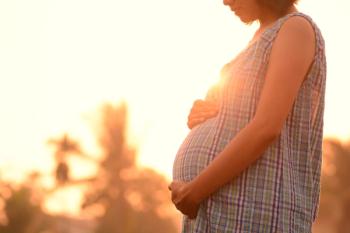
Comparing delivery room respiratory support for extremely preterm infants
An investigation looks into whether a new respiratory support system reduces intubation or death in the delivery room.
Extremely preterm infants often require support following delivery to breathe. A system with low imposed work of breathing and an interface that has short binasal prongs was recently introduced. An
Investigators performed this unblinded randomized clinical trial in 7 neonatal intensive care units in 5 European countries from March 2016 to May 2020. They screened mothers who were indicating they would deliver preterm before week 28 of gestation. The infants were randomized before birth to the intervention group that used the new respiratory support system with short binasal prongs or into the control group of standard care, which was a standard T-piece system with face mask. Regardless of the group, the infants were given continuous positive airway pressure for 10 to 30 minutes along with positive pressure ventilation, if required.
There were 246 liveborn infants who received treatment. The average gestational age was 25.9 weeks. Forty-one infants who received treatment with the new respiratory support system were either intubated or died in the delivery room. By comparison, 55 infants who received standard care were intubated or died in the delivery the room. No significant differences in safety variables or secondary outcomes were noted. The adjusted odd ratio was statistically significant even after adjusting for stratification variables (adjusted odds ratio, 0.53; 95% CI, 0.30-0.94; P = .03).
The investigators concluded that the new respiratory support system did lead to a reduction in the need to intubate extremely preterm infants in the delivery room. Furthermore, the use of low imposed work of breathing and binasal prongs appears to be a safe and feasible practice.
Reference
1. Donaldsson S, Drevhammar T, Li Y, et al. Comparison of respiratory support after delivery in infants born before 28 weeks’ gestational age. JAMA Pediatr. June 14, 2021. Epub ahead of print. doi:10.1001/jamapediatrics.2021.1497
Newsletter
Access practical, evidence-based guidance to support better care for our youngest patients. Join our email list for the latest clinical updates.







